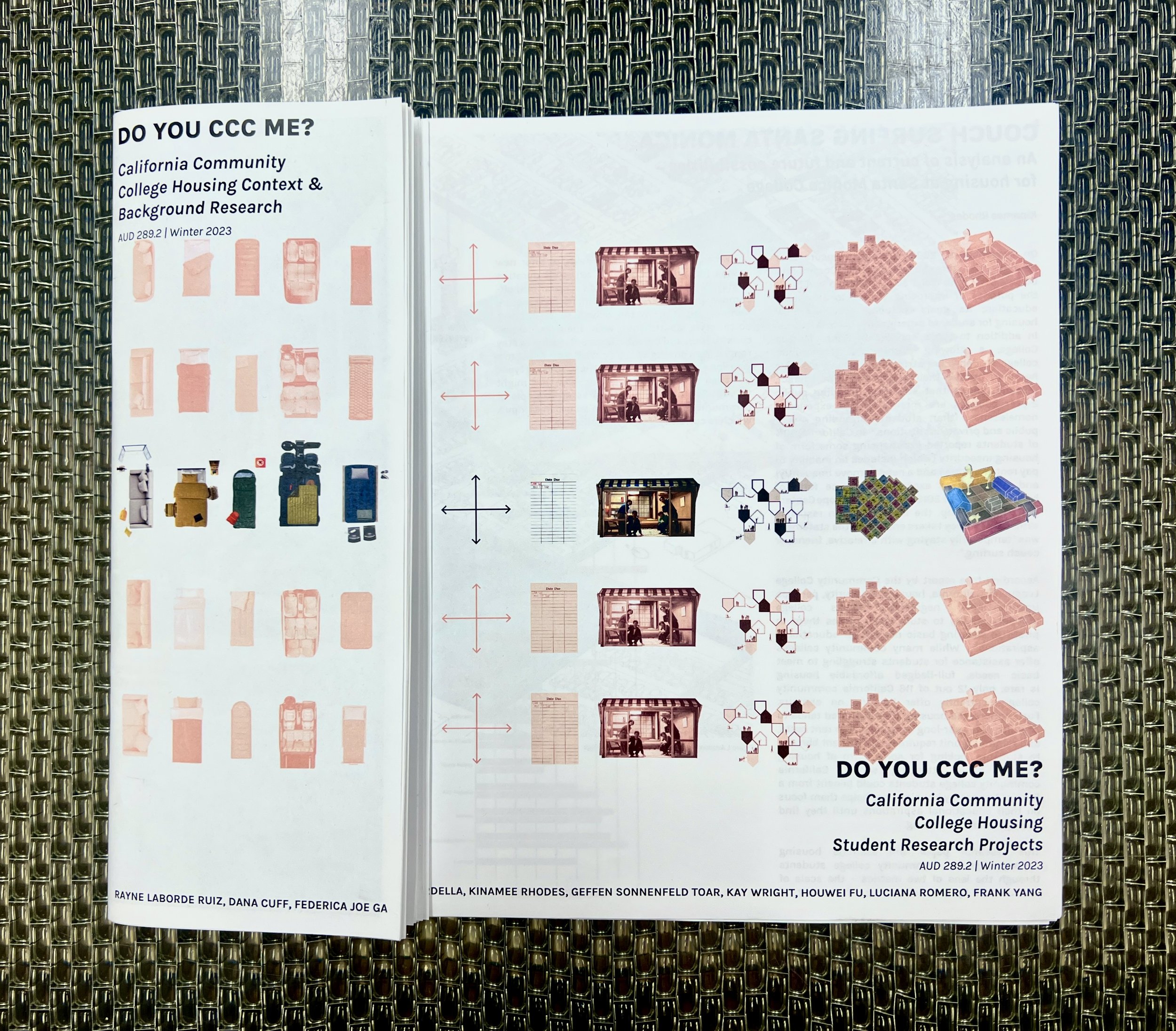
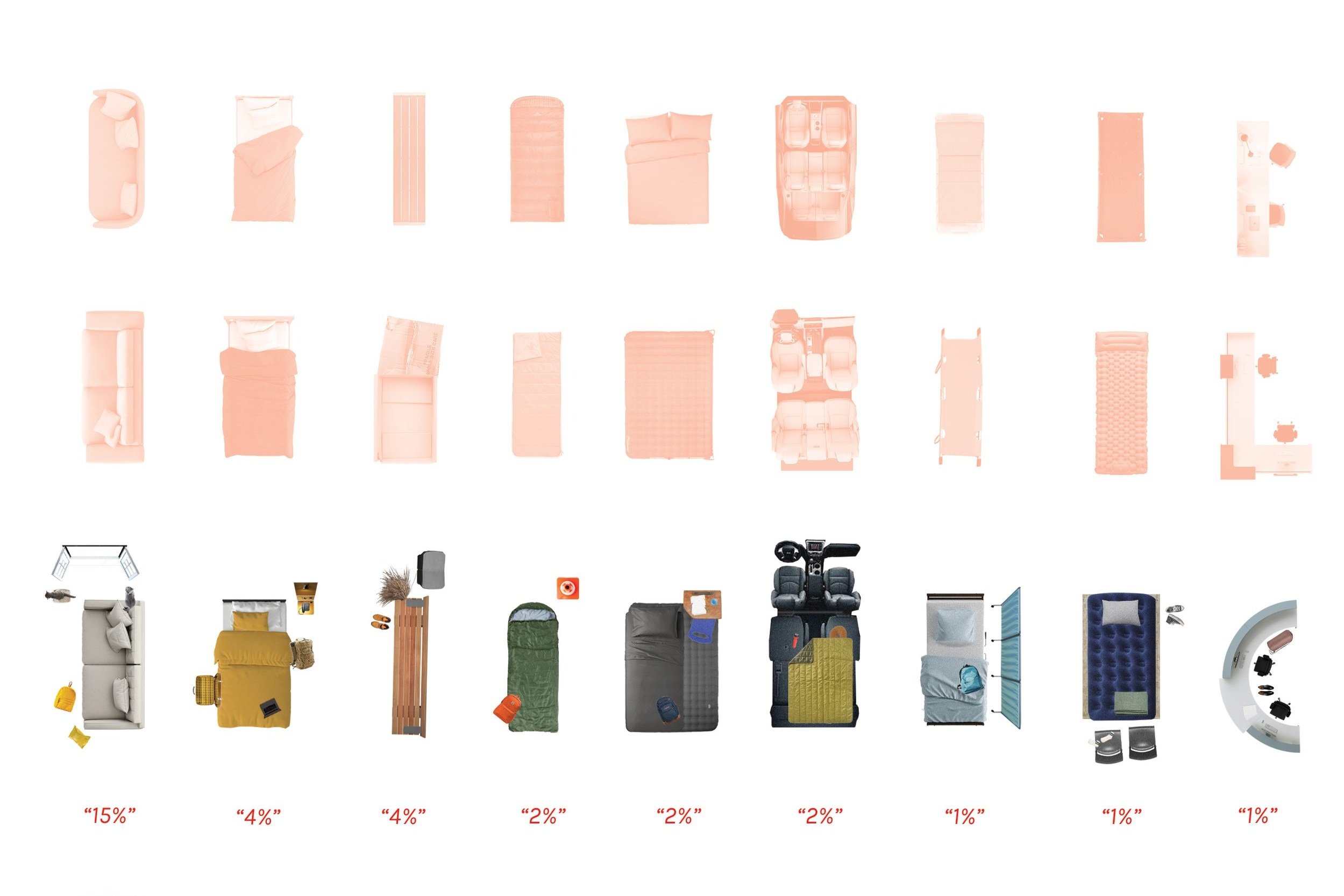
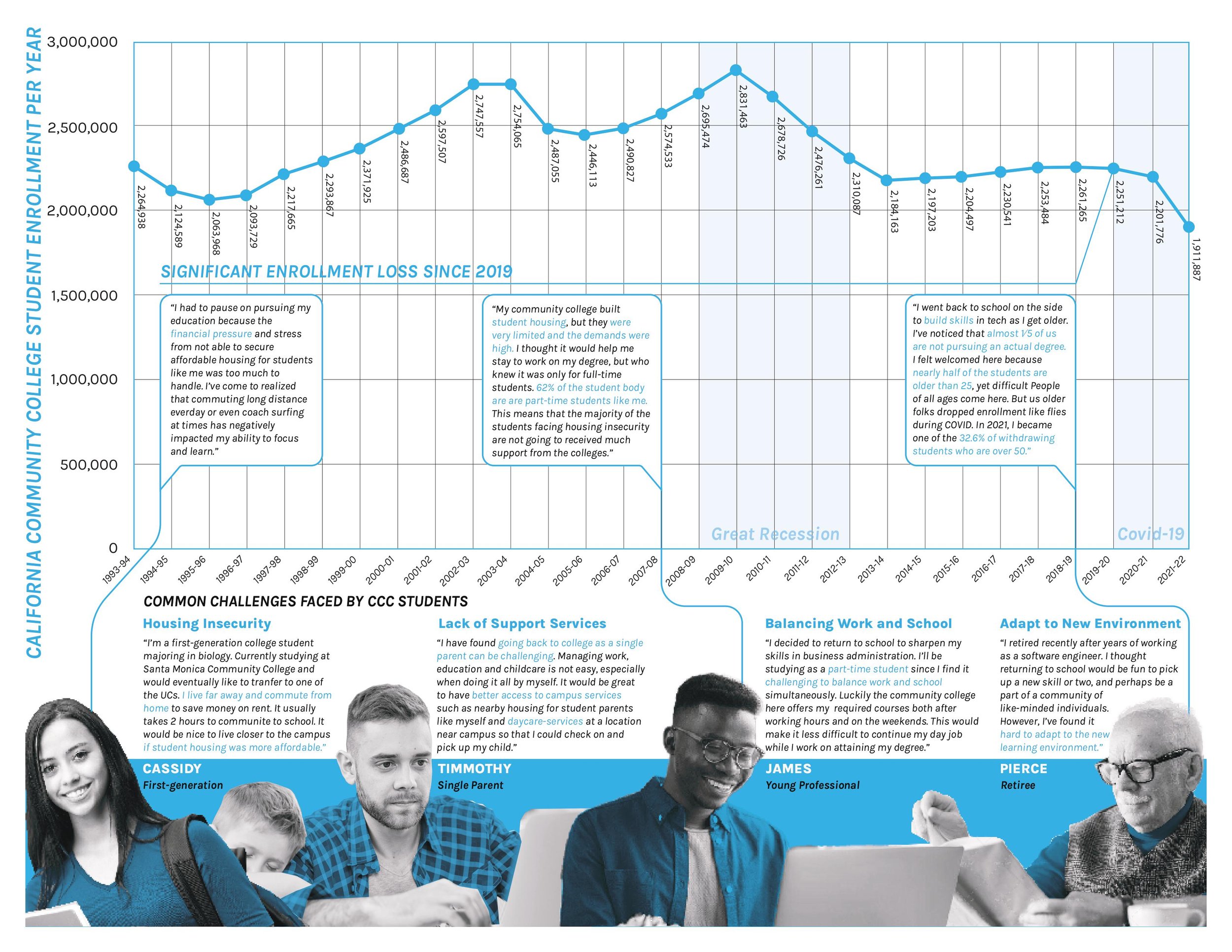
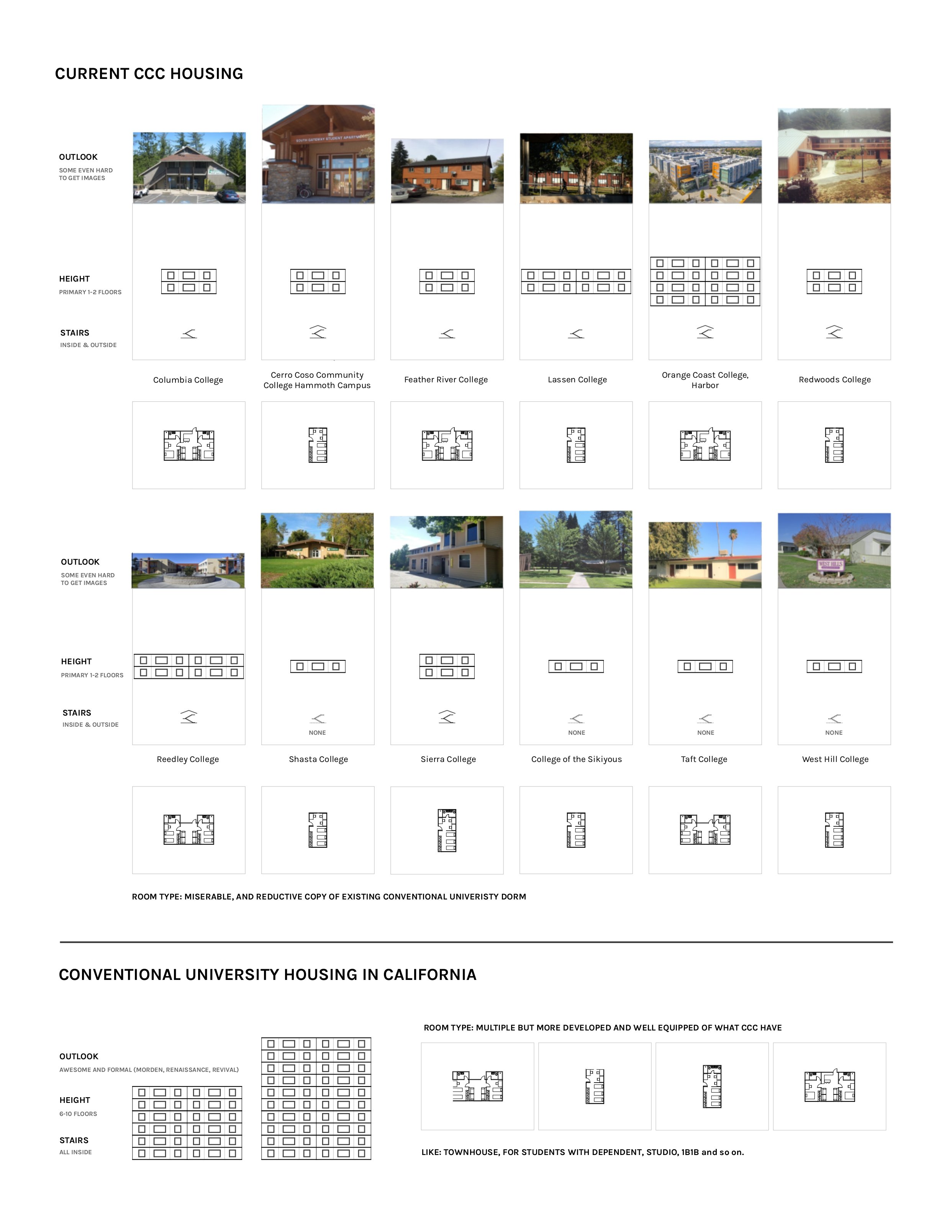
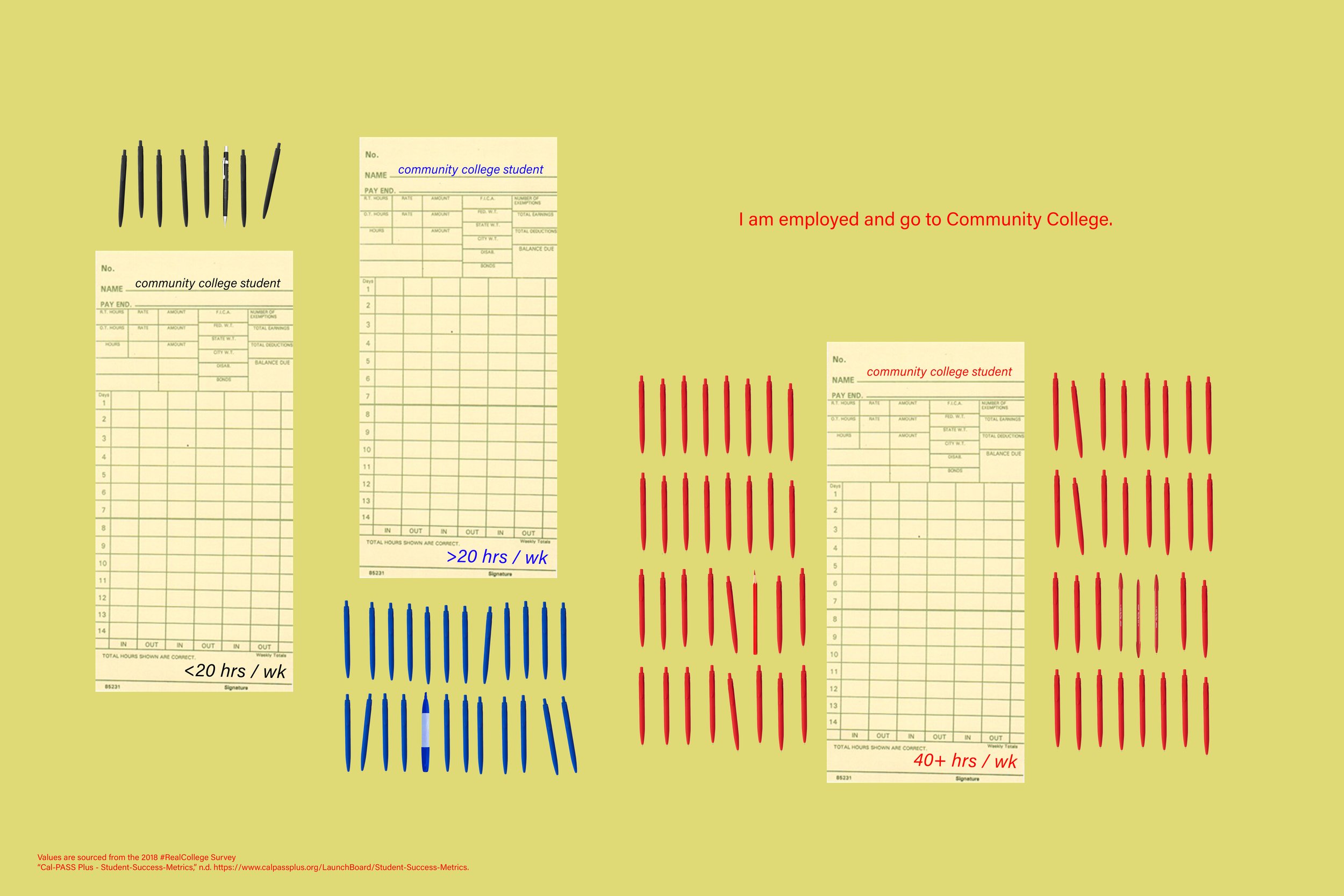
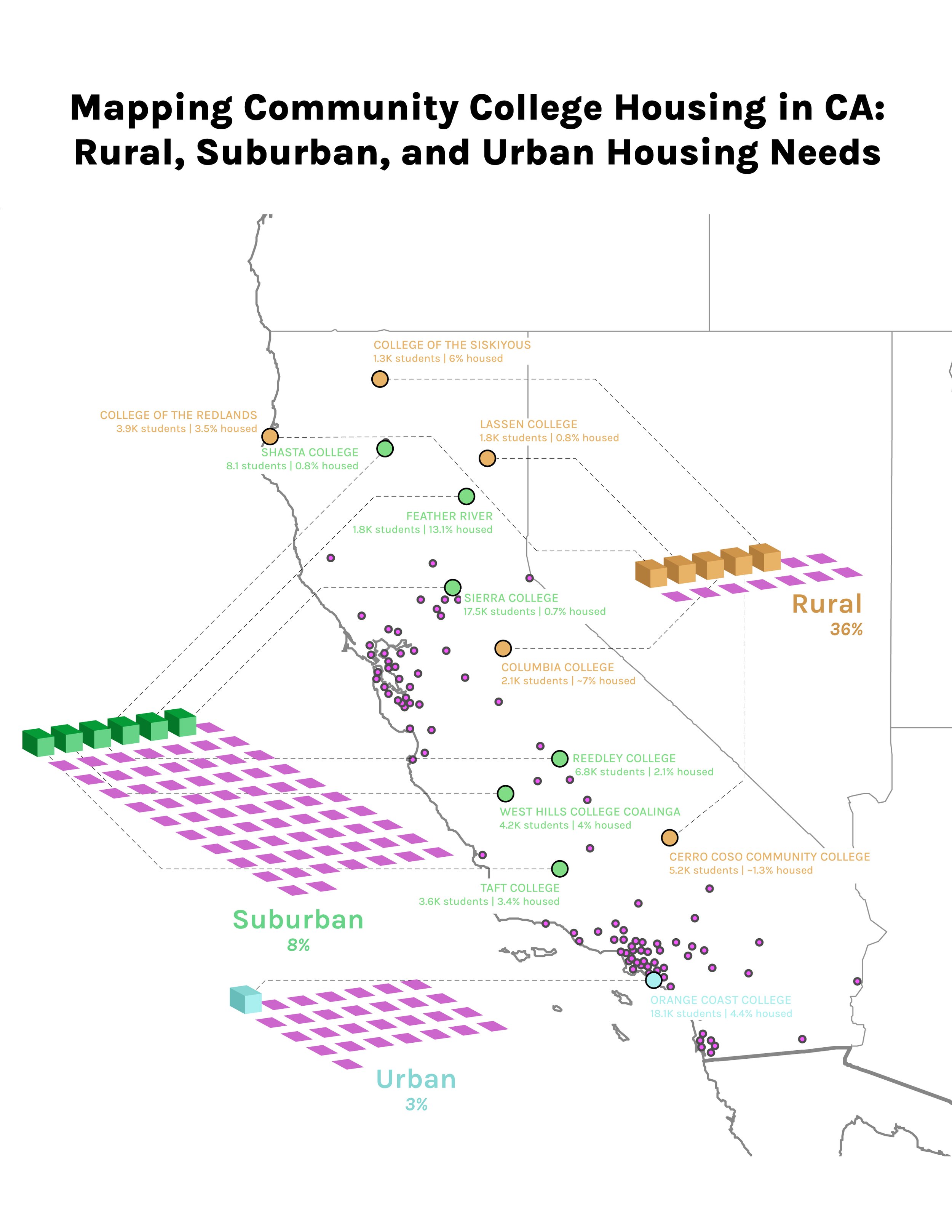
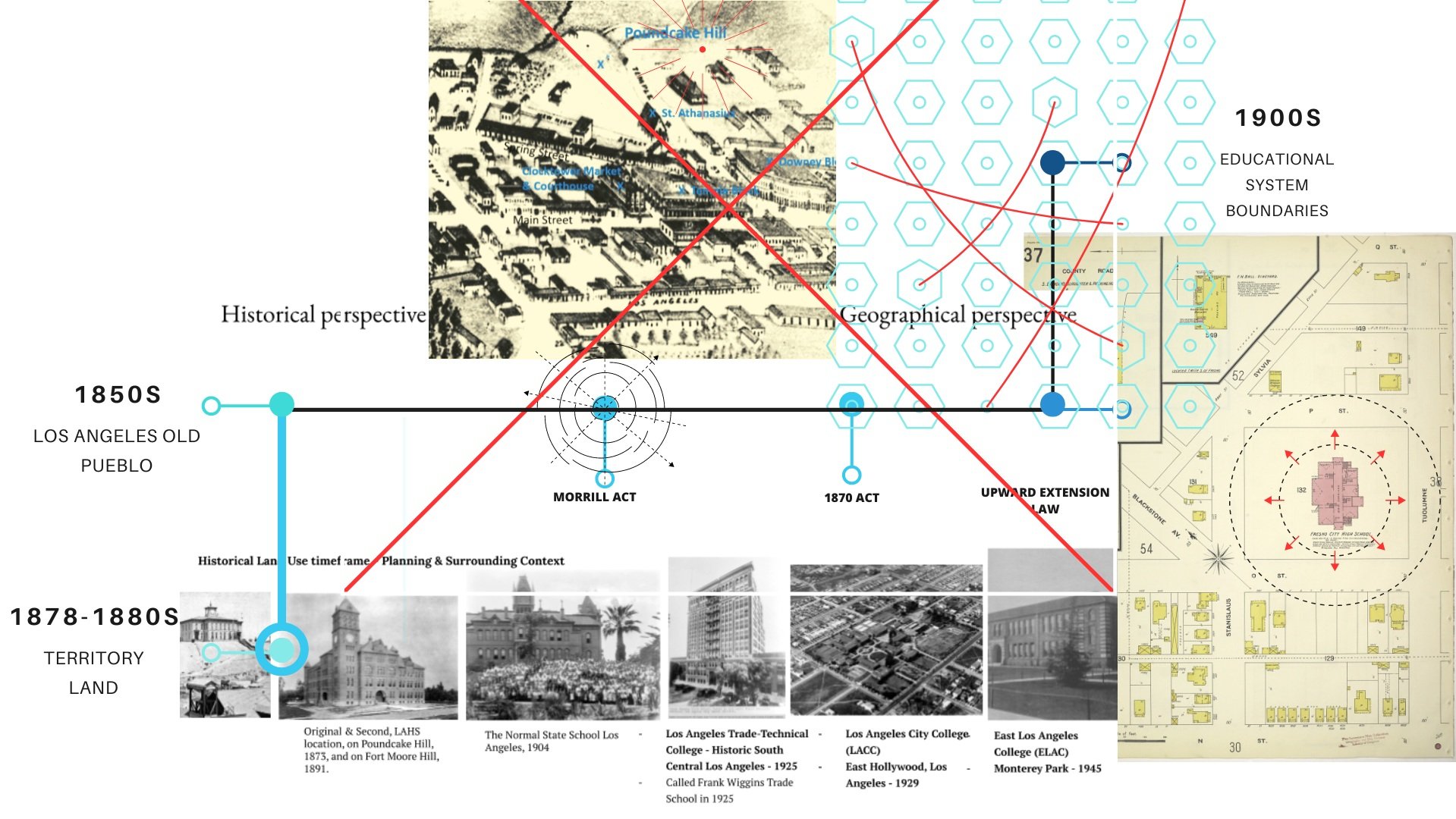

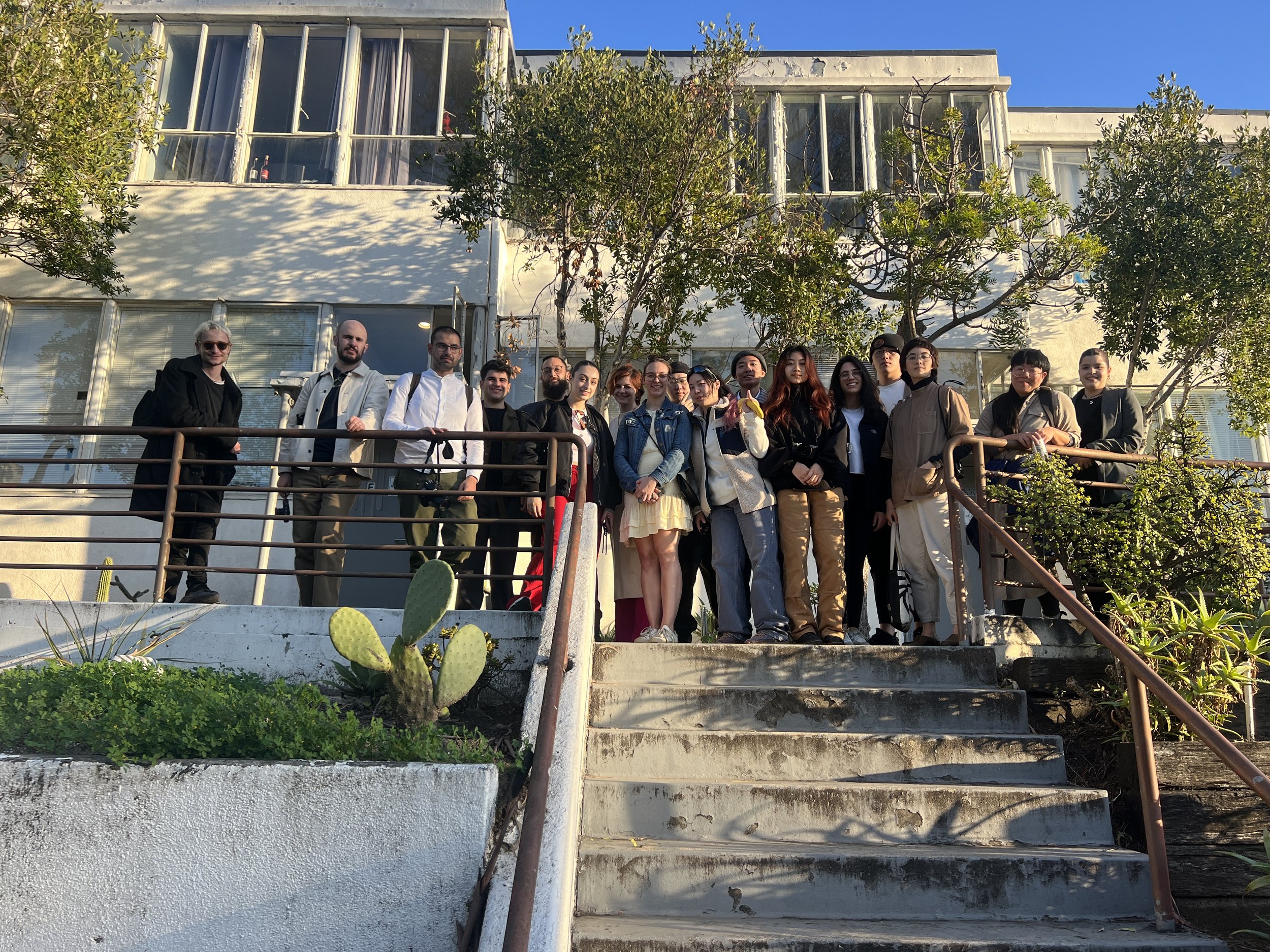
Do You CCC Me? California Community College Housing: Student-Led Research & Proposals
AUD 289.2 | Research in Practice: Design Studies at cityLAB and Beyond
In “Research in Practice: Design Studies at cityLAB and Beyond,” a UCLA Critical Studies course led by cityLAB Associate Director Rayne Laborde Ruiz and Director Dana Cuff, students collectively formulated a set of specific architectural research questions dealing with a fragment of the current housing crisis: innovative affordable housing typologies in the context of California’s community college system. This course operates in parallel to a grant-funded cityLAB research project titled “Affordable Housing on Community College Land” that aims to expand the array of affordable student housing solutions to meet the diverse needs of contemporary California Community College students. The resulting student publication is a collective, two-part research report titled “Do You CCC Me? California Community College Housing Context & Background” & “Student Proposals.” With background research ranging from efforts to understand who attends California Community Colleges today, to challenge the myths of 2-year graduation timeframes, and to understand where students are “making do” in lieu of designated housing; as well as proposals for new forms of flexible arrangements and calls for architects to play a central role in demonstrating “student” housing that is fit for all Californians, the work re-centers the role of research in architectural practice through applied learning. Read the full publication to learn more.
Read More
California Community Colleges (CCCs) comprise the largest system of higher education in the United States, and one of the largest in the world. Made up of 115 public institutions that are (usually) low-cost and nominally within commuting distance of 94% of Californians, CCCs were imagined with the surrounding "community"-based population in mind. Yet, in a time of increasing higher education costs, competition to transfer into UCs and other four-year universities, growing emphasis on specialized and professional programs, and dwindling numbers of people able to afford the lifestyle of a full time student, CCCs are increasingly serving students from other towns, counties, and even other states and countries. These students, in turn, struggle to find affordable and dignified places to live between a commuter campus and innumerable cities and towns impacted by the California-wide housing crisis. "Home-grown" local students also struggle when seeking a change in their living arrangements. Our class research and past literature shows that the lack of widespread affordable, dignified, or supportive housing is catastrophic for CCC students: nearly one-third have experienced homelessness and well over two-thirds are housing insecure. Food insecurity, mental health stressors, and academic underperformance are also highly reported - one of the key reasons that the State of California announced over $1.4 billion in funding for student housing in 2022, with special attention to CCC student housing.
Yet, studies also show that CCC students are not half-time clones of their four-year peers. More diverse, older, less economically resourced and often with lives that involve caretaking, working full time, or other complications rarer in university, CCC students are more representative of Californians writ large than any other higher level student body. Research at cityLAB, including "Fitting In, Fitting Out," shows how traditional dorms and student residence halls are ill-equipped to provide for contemporary university students, of whom 75% are now considered "non-traditional." This is exacerbated among their even less traditional two-year peers. Given the need for housing innovation to ensure state funds produce units that are not only affordable and protected but also livable, dignified, and joyful, we pose that new forms of living for CCC students may pave the way for new models for all Californians.
This quarter, we recentered the potential for design research in practice, showing how methods can be systematic, humanistic, and rigorous, and specifically tailored for architectural work within and beyond conventional sites. Our fundamental questions were the same as those at cityLAB and other design research centers: How can we organize our architectural efforts in order to advance a social agenda? Are there architectural practices or methods that embed a commitment to spatial justice?
We collectively formulated a set of specific architectural research questions dealing with a fragment of the current housing crisis: innovative affordable housing typologies in the context of California’s community college system. The questions generated set up studies to be undertaken individually or in groups, for which ethics and rigor were critical guides. Investigations can took multiple forms including archival, ethnographic, historical, and cartographic. Students gained skills to better grasp the nuances of the spatial environment and the people it will accommodate. Together our studies built materials for a class showcase.
AA-USC-UCLA Charrette: Co-Operative & Collective Housing Across Town & Across the Pond



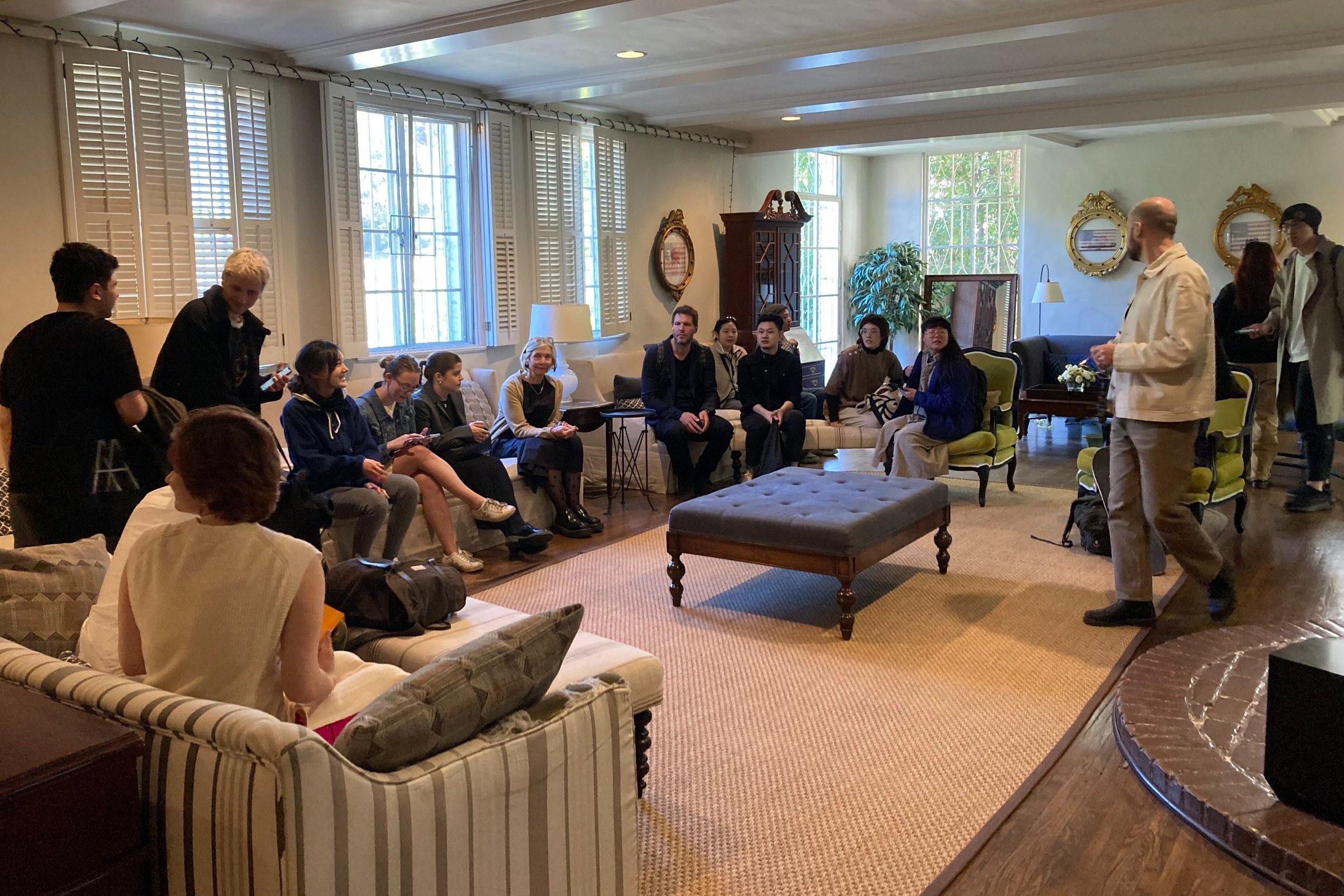

Midway through the quarter, the class hosted guests from “across town and across the pond” for a charrette and series of site visits related to co-operative and collective housing. UCLA students were joined by peers from Sascha Delz’s courses at the University of Southern California (USC) School of Architecture and Francesco Zuddas & Jon Lopez's "All Together Now" Intermediate 1 course at Architectural Association in London (AA) were joined by Kate Yeh Chiu of Materials & Applications and Maura Chen of LA Voice.
Gathered in Perloff Hall’s Decafe, designers were given scenarios involving specific communities and locations near the UCLA and USC campuses, challenging connections between site, people, space, and perhaps city designs of key spaces. Diagrams, sketches, and collages were presented to illustrate students’ solution and ideas on how architectural and urban design can connect these groups of people and solve their living and spatial needs.
After, the group toured and lunched at The Opportunity House, a supportive transitional housing program sited in a former sorority house and run by LA Room and Board. A member-led tour of the University Housing Association Co-op followed, immersing students in a member-run housing that emphasizes leadership, service, and connections to one another in both dedicated-built and adapted spaces, including historic apartments designed by Richard Neutra.
| Project Type: | Critical Studies Course |
|---|---|
| Credits: |
Students
Kinamee Rhodes
Rayne Laborde Ruiz
Francesco Zuddas Federica Joe Gardella |
| Timeline: | Jan - Mar 2023 |
| Themes: | Housing, Pedagogy |
